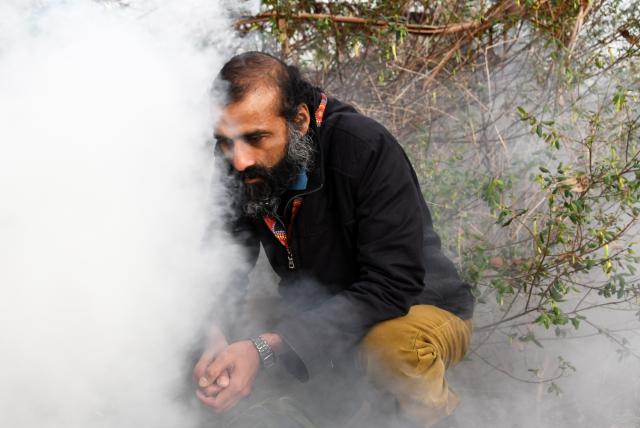
By Callum Ludwig
Following on from Adam Goodes’ appearance in 2021’s Our Country, Our Future, Our Shared Responsibility event hosted by Yarra Ranges Council for National Reconciliation Week, the man Mr Goodes praised spoke in the 2022 edition.
Paul Roos was Mr Goodes coach from 2002 to 2010, consisting of most of his playing career, and Mr Goodes said he was the person who has given him the most cultural safety and spiritual support.
Mr Roos said the transition from semi-professionalism to full-time professionals afforded coaches like himself the time to get to know players, and that was the foundation of his relationship with Mr Goodes and other players.
“If I wanted to be a really good coach and wanted to provide a safe haven and environment whether it was for Adam Goodes, Mick (Michael) O’Loughlin, Brett Kirk or Jarrad McVeigh, I really had to get to know the person,” he said.
“I did Australian history in Year 12, a long time ago now, I’m 58 and that was in ‘79 or ‘80, and there was not one thing on the Indigenous culture. I couldn’t believe it as I became an older male and then coached that you could do the Goldfields at Sovereign Hill or World War One but nothing on Indigenous culture.”
Mr Roos won the Sydney Swans their first premiership in 72 years in 2005 before also taking them to the 2006 Grand Final in which they lost. Mr Goodes won two Brownlows under his coach and mentor in 2003 and 2006.
Mr Roos said the safer a space you can create, the more organically reconciliation and integration occurred.
“That was the strength of the environment, the Indigenous players just felt safe, that they could speak up and talk about it,” he said.
We had players, people in the office transferring information and players asking questions, like ‘Hey Adam, I just met your mum and she’s an artist, can you tell us a bit about her background?’, they felt empowered and comfortable with their teammates.”
The Sydney Swans were famed for their ‘Bloods culture’ during this successful era in the club’s history, where they reached eight preliminary finals in 14 years, including five Grand Finals, winning two premiership flags. In 2014, former player Luke Ablett wrote in The Guardian that former captain Stuart Maxfield got the ball rolling on the ‘Bloods Culture’ in 2002 and 2003 when the club began using the ‘Leading Teams’ model to establish player-set values.
Mr Roos said when you are in a culture, you are part of it and don’t really notice changes, the same way a parent doesn’t notice their child is getting bigger.
“I would encourage everyone to ask the newest person ‘Have you created a safe space for everyone?’ and ask it honestly, if there’s a bit of a pause and a deep breath, then you know you haven’t,” he said.
“It’s a really good way of defining from an inclusive point of view, ask the question. What does our culture look like? Is it safe? Do you feel comfortable talking about your background? Whether it’s from an Indigenous community on the Yarra River or the Murray or your parents have arrived from Croatia in the 1960’s.”
The interview was conducted by Nelson Aldridge, Taungurung man, member of the Yarra Ranges Council Indigenous Development Team and Vice-Captain of the Warburton-Millgrove Senior Football side. Reconciliation will continue from Friday 17 May to Friday June 3.






